Can Cats Eat Dog Food? What To Do If It Happens?
12.03.2022.
Those that share their homes with cats and dogs know how much fun such a lively home can be. However, having both species at home means feeding them different foods, creating different schedules, and keeping their stuff separated. One of the things that often happen is food theft. Cats can grab some of your dog’s food, and dogs can grab some of your cat’s food.
Many cat owners get worried about their cat’s health if that happens, and one of the common questions we receive is, “Can cats eat dog food?” The shortest answer is - yes. However, there are layers to this answer. Here’s what you should know about cats eating dog food.
Is it Safe for Cats to Eat Dog Food on a Long-Term Basis?
No, cats cannot survive on a dog food diet. If a cat is only fed dog food for an extended period, it can have negative, if not fatal, consequences. This is due to the fact that dog food and cat food formulas contain different nutritional components to meet the dietary needs of these two species.
RELATED: 7 Best Cat Treats You Can Pick
Cats and Dogs Have Differing Nutritional Requirements
While both dogs and cats share our hearts and homes, nature has shaped them into very different animals with very different nutritional requirements over time. Cats are obligatory carnivores, which means they must eat meat-based proteins and animal fats for all of their body systems to work correctly. Dogs, on the other hand, are omnivorous. An omnivore's diet is more versatile. Omnivores can eat meat, grain, and vegetables. A dog food diet does not meet the nutritional requirements of cats.
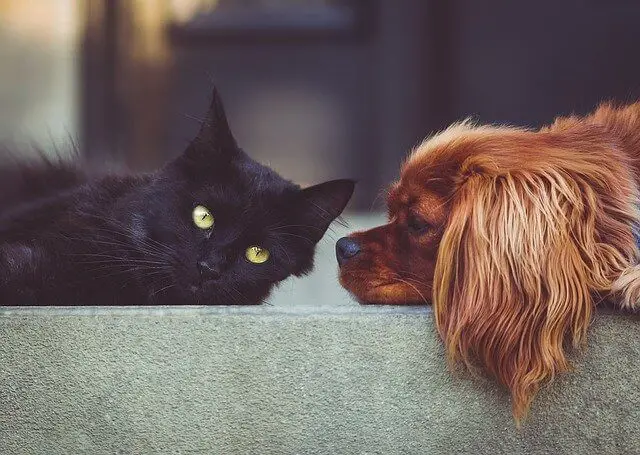
What Are the Differences Between Cat and Dog Food?
The cat and dog kibble might look similar at first glance. However, when you take a deeper look into the nutrient list, it’s hard not to notice the difference. Here are a few critical differences between dog food and cat food formulations.
Taste
Cats have a different taste perception than dogs. Cats, unlike dogs, are unable to detect sweetness, and the number of taste receptors differs between the two species. Cats have only 470 taste buds, while dogs have 1700 (humans have over 9000). Cat foods are specifically designed to be highly palatable in order to entice our sometimes picky (and taste-bud deficient) feline friends to eat.
WORLD CAT FINDER FACT: Cats are unlikely to want to eat dog food because it is unappealing to them. Dogs, on the other hand, adore the delicious, high-protein content of cat food.
Protein
Cats, being strict carnivores by nature, require food with a much higher protein content than dog food. Occasional brands and types of dog food have higher protein levels. Still, even these specialized dog foods do not provide the high level of protein required to keep cats healthy. Most dog foods contain 18-26 percent "As-Fed" protein. For cats, however, it’s usually recommended to get foods that contain at least a 30-34 percent "As-Fed" protein percentage, with an optional supplement of canned cat food containing 40-50 percent protein.
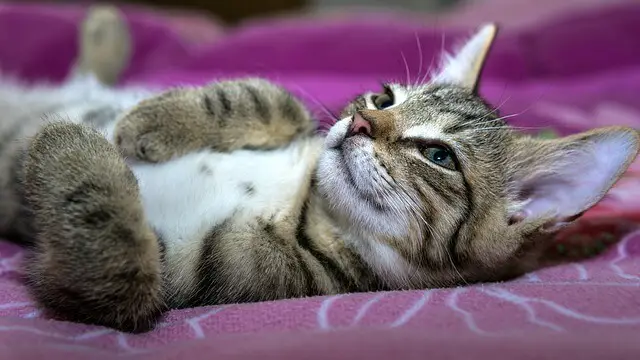
RELATED: Can You Give Bread to Your Cat? Is It Safe?
Taurine
Cats (and humans) are among the few mammals that cannot produce taurine, so they must obtain this essential nutrient from their diet. Cats who do not get enough taurine in their diet can develop;
- Heart problems (dilatated cardiomyopathy)
- Visual impairment
- Problems with digestion
Taurine is now added to all commercially available cat food; however, it is rarely included in dog foods.
Arachidonic Acid (AA)
Arachidonic acid is a fatty acid that cats cannot produce; it must be consumed. Cats with low arachidonic-acid levels exhibit nonspecific symptoms of illness, such as:
- Abnormal liver/kidney function
- Increased skin problems occur on occasion.
Because dogs can produce this fatty acid on their own, it is rarely added to dog food.
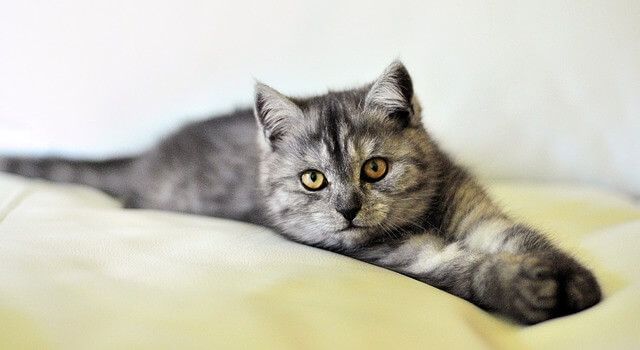
RELATED: 7 Best Dry Kitten Foods
Vitamin A
Another dietary element that cats cannot synthesize on their own and must be supplemented in their diet is vitamin A. While vitamin A supplements are commonly found in dog foods, they are never in sufficient quantities for optimal cat nutrition. Cats who are deficient in vitamin A will have:
- Poor coat quality
- Muscle deterioration and weakness
- Night blindness is a possibility
Niacin
Niacin is essential in a cat's diet because cats cannot produce it on their own. Although animal tissue is the most common source of niacin in cat food, plants do contain trace amounts of niacin. However, a food with a lower content of animal tissue and a higher content of plant tissue, such as grains, may not provide cats with the necessary levels of niacin.
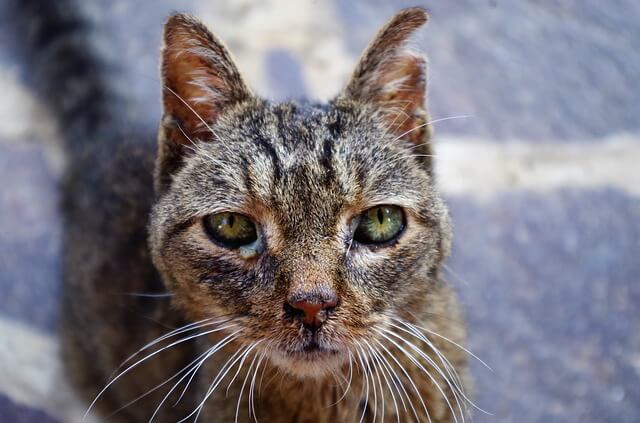
What Should You Do If Your Cat Eats Dog Food?
If your cat eats a few bites of dog food every now and then, you probably don't need to worry. Keep an eye on your cat for signs of illness such as weight loss, vomiting, diarrhea, poor skin/coat condition, inappropriate urination or defecation, or other symptoms. If your cat isn't feeling well, make an appointment with your veterinarian.
RELATED: Can Cats Eat Cheese? Here's What Your Vet Might Say
Eating dog food may be riskier if your cat has an allergy, a sensitive stomach, or a medical condition. Make a note of the food your cat ate and consult with your veterinarian about any potential complications.
If you notice your cat eating large amounts of dog food on a regular basis, you should seek advice from your veterinarian. Your cat may require an examination and lab tests to assess overall health and look for signs of malnutrition.
WORLD CAT FINDER TIP: Make it difficult for your cat to find dog food by keeping it out of reach. Pick up bowls of leftover food and avoid free-feeding all pets in the house.
World Cat Finder Team

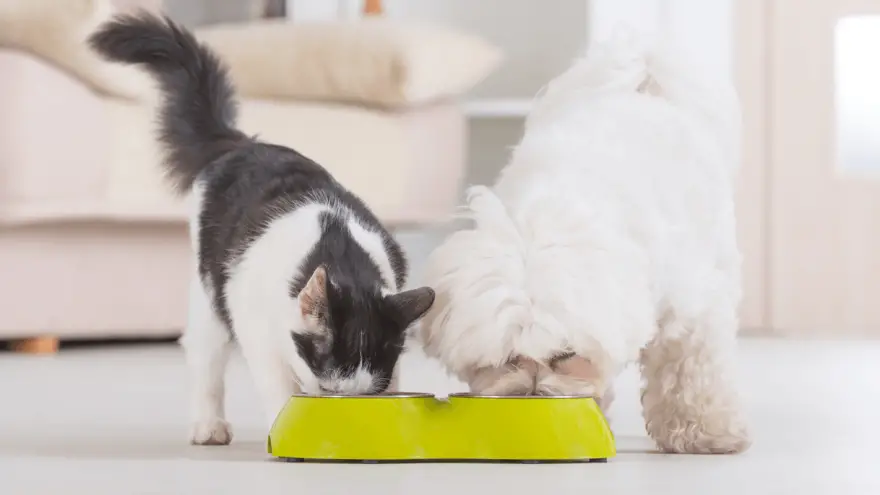

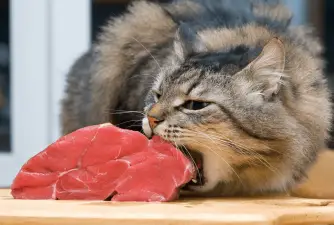
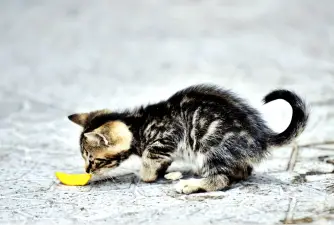
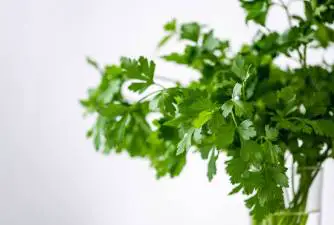

Share